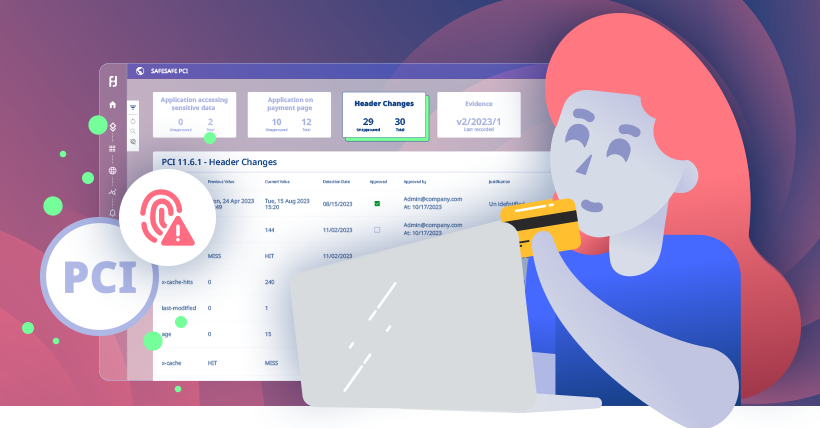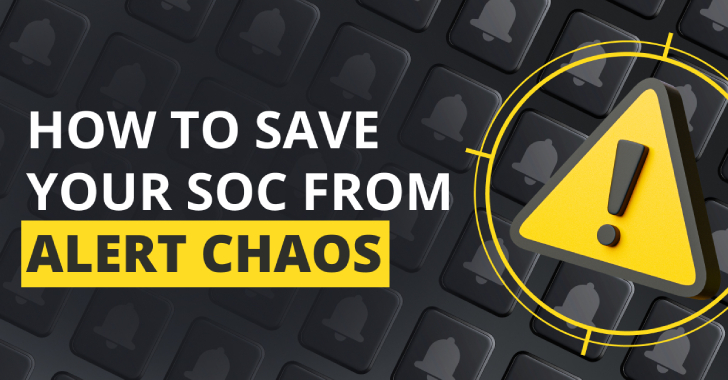The PCI DSS landscape is evolving rapidly. With the Q1 2025 deadline looming ever larger, businesses are scrambling to meet the stringent new requirements of PCI DSS v4.0. Two sections in particular, 6.4.3 and 11.6.1, are troublesome as they demand that organizations rigorously monitor and manage payment page scripts and use a robust change detection mechanism. With the deadline fast approaching and the consequences of non-compliance so severe, there is no room for complacency, so, in this article, we look at the best way to meet these complex coding requirements.
PCI DSS v4: Understanding Requirements 6.4.3 and 11.6.1
These changes to PCI DSS in v4.0 acknowledge the urgent need to tighten client-side security in the face of pervasive supply-chain threats. They call for beefed-up payment page security to keep customers’ sensitive payment details safe from malicious script injection attacks:
6.4.3: To meet this requirement your organization needs to monitor and manage all payment page scripts executed in the consumer’s browser. This includes ensuring that scripts are authorized, their integrity is maintained, and that you keep an inventory that lists each one with written justifications for their inclusion.
11.6.1: This requirement focuses on detecting script changes and preventing tampering, so organizations will need to implement a mechanism to promptly detect unauthorized modifications to the security-critical HTTP headers and scripts used on payment pages. This will help to prevent malicious code injection and other attacks that target payment data.
A Proprietary PCI Dashboard
Reflectiz was aware that traditional PCI compliance methods can often be time-consuming and resource-intensive, so they created a dedicated PCI dashboard that generates them with a minimum of fuss. It provides real-time, remote visibility into your online ecosystem, with script-level monitoring and no need for on-site resources, so compliance is baked in, and compliance reporting is very straightforward, because it’s like a natural by-product of what the solution is already doing.
Get access to a 30-day free PCI Dashboard.
Simplify Compliance with Smart Approvals
Reflectiz’s smart approval mechanism is another time-saver. Instead of manually approving and justifying each script, you can simply define acceptable script behaviors and then let the system automatically batch-approve the ones that meet them.
You can still approve and justify individual script changes when necessary, but having the option to streamline the approval process by defining acceptable script behaviors in this way is a liberating additional feature. It extends to managing approvals for websites with multiple payment pages, too, which is even better.
To summarize:
Script Approvals: Easily approve and justify individual script changes to meet requirements 6.4.3 and 11.6.1.
Smart Approval Mechanism: Streamline the approval process by defining acceptable script behaviors.
Multiple Payment Page Management: Efficiently manage approvals for websites with multiple payment pages.
The benefits of using Reflectiz’s PCI dashboard soon add up.
Time savings: Automate manual processes, freeing up your team to focus on core business activities.Recently, Reflectiz reduced the level of work needed for one of its customers by 95%(!) See case study below.
Cost reduction: Reduce the overhead associated with compliance efforts, including personnel and resources.
Reduced risk of non-compliance: Stay ahead of PCI DSS requirements and minimize the risk of costly penalties and reputational damage.
Using security solutions that rely on embedded JavaScript can add more vulnerabilities (including OWASP top ten vulnerabilities) than they fix, like trying to fight fires with gasoline. Reflectiz operates remotely, which gives it an uninterrupted view of every script on the page with no chance of compromise and no extra vulnerabilities added. The last place you should be introducing JavaScript vulnerabilities is a payment page, so Reflectiz takes the far safer and more effective route to PCI compliance of monitoring them remotely.
Access your 30-day free PCI Dashboard.
Why Reflectiz Chose Remote Monitoring Over Embedded Scripts
Embedded security scripts add significant drawbacks:
Privacy concerns: They can access your business and user data, adding an ongoing burden to your compliance efforts.
Limited visibility: They can’t monitor critical areas like iFrames, user hijacking, and tracking cookies. These are invisible to them.
Performance impact: They slow down websites and require constant updates.
Security risks: They’re vulnerable to attacks and they increase the overall attack surface.
Reflectiz’s remote monitoring approach overcomes these challenges by providing comprehensive, secure, and efficient oversight of web components.
Stuart Golding, a leading PCI DSS Qualified Security Assessor, shares the view that this is the right approach: “Personally, I tend to favor solutions that are least intrusive, both in terms of cost and implementation. These solutions typically require minimal development or changes to the organization’s webpage, allowing for quick implementation and results.”
Case Study: A Major US Insurance Company
Challenge: A major US insurance company needed to comply with the new PCI DSS v4.0 requirements, specifically 6.4.3 and 11.6.1, which, as we’ve noted, mandate rigorous monitoring and management of payment page scripts. The company had:
2 payment pages
Approximately 60 scripts across both pages
Solution: The company implemented Reflectiz’s PCI dashboard to streamline script monitoring and approval during a two-week period.
Results:
Breakdown:
Key Takeaways:
Reflectiz identified a significant number of script changes (30% in just two weeks) highlighting the need for continuous monitoring.
Projecting this data onto a larger scale (8 payment pages), Reflectiz can potentially save the company from reviewing and approving 40 scripts every week.
By automating approvals and minimizing manual effort, Reflectiz reduces the risk of human error and streamlines the compliance process. This translates to significant cost savings and a smoother path to passing PCI audits.
This case study demonstrates the efficiency and effectiveness of Reflectiz in managing script changes and ensuring PCI DSS compliance.
Beyond PCI Compliance
PCI compliance is only one aspect of Reflectiz’s comprehensive set of web security features. By monitoring third-party web components, tracking data access to payment and credit card information, and maintaining a complete inventory of third- and fourth-party scripts, Reflectiz helps organizations achieve and maintain PCI DSS v4.0 compliance while strengthening their overall web security posture.
Access your 30-day free PCI Dashboard.
Found this article interesting? This article is a contributed piece from one of our valued partners. Follow us on Twitter and LinkedIn to read more exclusive content we post.






